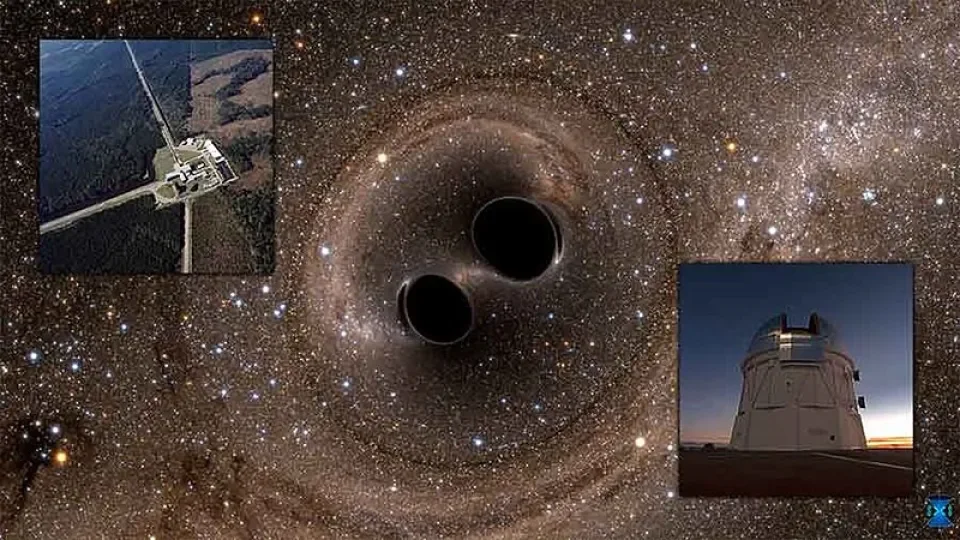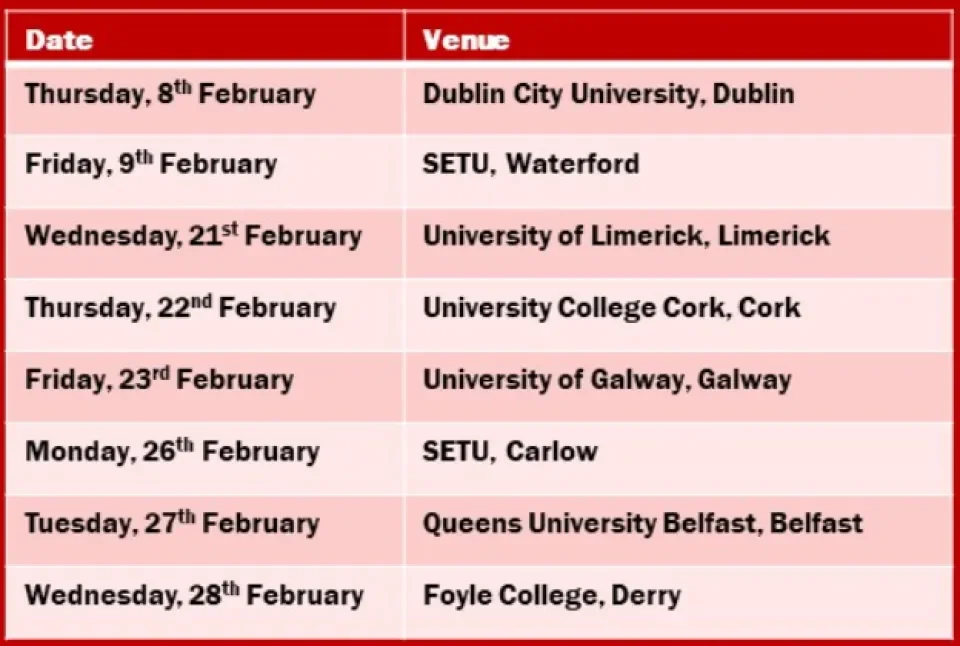
IOP Ireland Tyndall Lecture 2024 with Martin Hendry
The Institute of Physics Tyndall Lecture series 2024 kicks off in DCU on Thursday, 8th February. The lecture is aimed at post-primary students in TY and fifth and sixth year. This year’s lecture will explore the cutting edge results from gravitational wave detections and what they tell us about some of the most extreme events in the universe and the structure of the universe itself.

Image courtesy of SXS, LIGO Laboratory and T. Abbot & NOAO/AURA/NSF
Predicted by Albert Einstein more than 100 years ago, gravitational waves are ripples in the fabric of space and time produced by some of the most extreme events in the cosmos: exploding stars, colliding black holes, even the Big Bang itself. Join University of Glasgow “black hole hunter” Professor Martin Hendry for a whistlestop tour of the exciting new field of gravitational-wave astrophysics: the ground-breaking discoveries that Martin and his colleagues are making, the remarkable engineering and technology that has enabled them, and how these discoveries are helping us to unlock the mysteries of Einstein's universe. In this lecture Martin will also celebrate the legacy of Lord Kelvin, born William Thomson in Belfast in 1824, and one of the most important physicists of the past 200 years. During his five decades as University of Glasgow professor, Lord Kelvin was famous for turning fundamental scientific ideas into useful inventions that transformed people’s lives – a legacy of innovation that physics continues to this day, with new inventions and technologies that are revolutionising the 21st century.
If you want to take students from your school to the Tyndall lecture you must register in advance using this form.
See below for a full list of dates and venues for the 2024 Tyndall Lecture series.

Tyndall Lecture series 2024
Tyndall Speaker 2024
Martin Hendry is Professor of Gravitational Astrophysics and Cosmology at the University of Glasgow, where he is also Clerk of Senate and Vice Principal of the University. He is a senior member of the LIGO Scientific Collaboration: the global team of more than 1500 scientists who (with their colleagues in the Virgo Collaboration) made the first ever detection of gravitational waves - a discovery awarded the 2017 Nobel Prize for Physics. Martin is a Fellow of the Institute of Physics and is also a Fellow (and currently Vice-President) of the Royal Society of Edinburgh – Scotland’s National Academy. He is a passionate advocate for science education and communication and in 2015 he was awarded the MBE for services to the public understanding of science.
